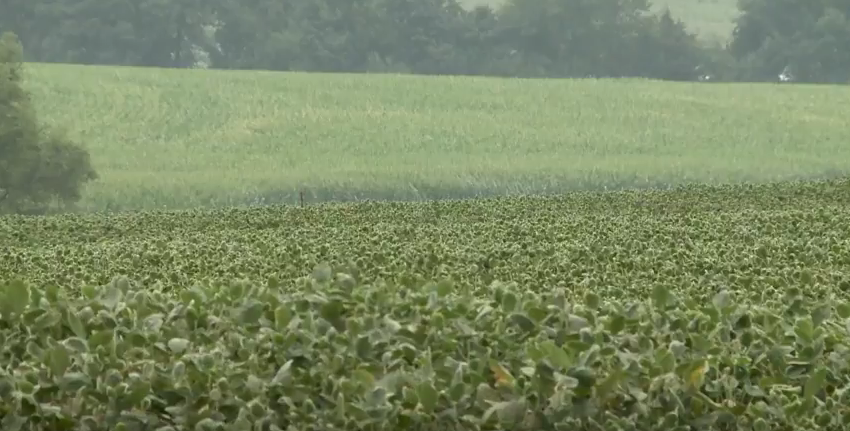
January 4, 2018
Lincoln, Neb. — Online training for Nebraska applicators who plan to use new restricted use pesticide (RUP) dicamba products now is available through Nebraska Extension.
Nebraska applicators completing the new training may apply Monsanto’s XtendiMax, DuPont’s FeXapan and BASF’s Engenia on genetically modified Xtend soybeans. These herbicides kill broadleaf weeds but not Xtend soybeans. Since soybeans also are broadleaf plants, problems arise when traditional, or non-Xtend soybeans, have dicamba-related injuries.
“All state-licensed applicators, either private or commercial and who plan to use the new products in 2018, must undergo new, label-required training before applying them,” said Clyde Ogg, pesticide extension educator and coordinator of Nebraska Extension’s Pesticide Safety Education Program (PSEP). PSEP, along with the Nebraska Department of Agriculture (NDA), spearheaded the new video training.
Unlicensed individuals who plan to apply the new products must have both the traditional NDA-issued license to apply RUPs, AND have proof they have taken the new NDA-approved RUP dicamba training, Ogg said.
Ogg said the dicamba training is designed to help applicators better protect traditional soybeans and other sensitive crops from damage caused by particle drift, tank contamination, temperature inversions and volatility. Also, the training will help applicators better understand the extensive new dicamba requirements for timing and recordkeeping.
“The three new RUP dicamba labels have mandatory recordkeeping components that far exceed anything previously seen,” Ogg said.
The no-cost dicamba training is comprised of four video modules that should take less than two hours to complete. Topics include off-target herbicide movement and how to prevent it; equipment settings and weather restrictions; and information required specifically for Nebraska. Proof-of-training documentation will be issued to applicators who complete the online training.
“This proof is necessary to show that both private and commercial RUP applicators have taken the new required training before using any of the three new RUP dicamba products,” Ogg said.
Details for the online training can be found at https://pested.unl.edu. Look for “*NEW* Dicamba Label-Required Training.”
A comprehensive listing of dicamba topics from NDA is found at http://www.nda.nebraska.gov/pesticide/dicamba.html.
Individuals wanting training for both traditional RUP pesticides and the new RUP dicamba products have two other options for Extension training. One is through its Crop Production Clinics or the Nebraska Crop Management Conference, where commercial applicators may be recertified for traditional RUP licensing. The other is through county Extension offices providing private RUP applicator training; Check with an individual Extension office to see if the dicamba training is being offered.
Manufacturers of the new dicamba products also offer the required training.
The new training requirement comes after the federal Environmental Protection Agency in October classified the three newer dicamba products as RUPs, and added new application, timing and recordkeeping requirements to the labels. Nationally in 2017 more than 2,200 complaints about dicamba were said to have injured more than 3 million US soybean acres.
Clyde OggPesticide Safety Education Program Educator
402-472-1632
cogg1@unl.edu Writer:
Cheryl Alberts
Pesticide Safety Education Program Coordinator
402-472-1696
calberts1@unl.edu







